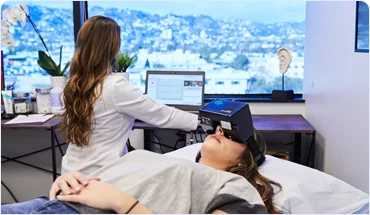The Top Causes of Vertigo and How to Address Them
The Top Causes of Vertigo and How to Address Them
Blog Article
Are you feeling dizzy or unstable? You're not alone. vertigo causes is a common disorder that affects a lot of people, making everyday activities challenging. It's not just feeling lightheaded, it's an experience that feels like the entire world is spinning around your head. Knowing how to deal with vertigo is the first step toward managing it and enhancing your living quality.

Vertigo often arises from problems in the inner ear which plays a vital role in maintaining equilibrium. The most common causes is Benign Paroxysmal Positional Vertigo (BPPV). This occurs as tiny pieces of calcium clump up inside the canals of your ear, disrupting regular flow of the fluids that allow you to sense your position. BPPV is often triggered by sudden head movements. It can trigger intense spinning sensations, especially when you head turns or get up fast.
A different cause that is common is Meniere's disease, a disorder of the ear's inner part that triggers symptoms in vertigo and tinnitus and loss of hearing. Meniere's disease is thought to result from an abnormal amount of fluid in your inner ear, though why this happens is not entirely known. Management of Meniere's disease often requires dietary changes, including reducing salt intake and avoiding caffeine to help reduce fluid buildup.

Vestibular neuritis is a different cause, characterized by the inflammation that affects the vestibular nerve, that transmits information on balance to the brain. This condition can lead to abrupt, intense vertigo that lasts for a few days and is often related to viral infections. Rest and medications will help to manage symptoms until the infection resolves. Report this page